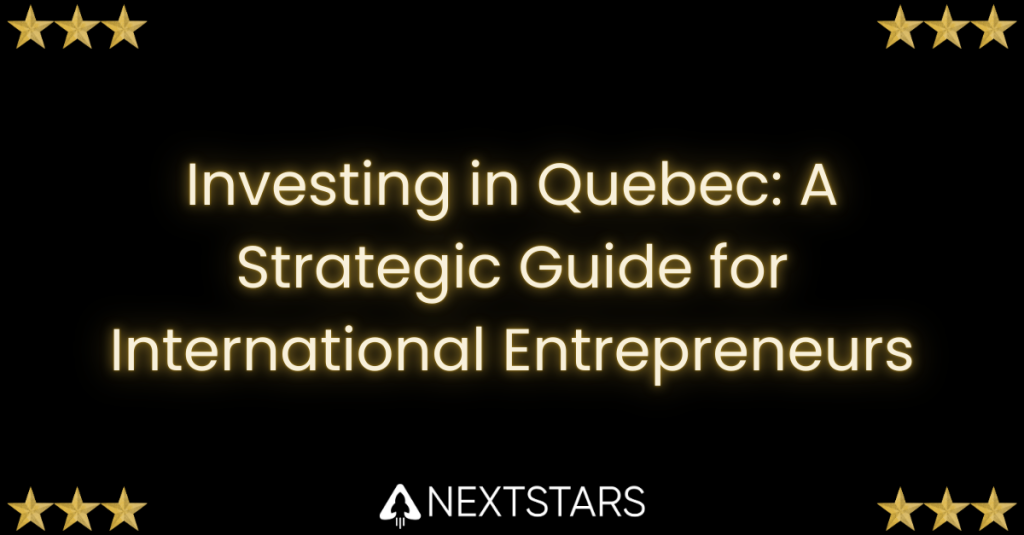Bahrain’s startup ecosystem represents one of the most concentrated innovation experiments in the world—a tiny island nation of 1.7 million people that has positioned itself as the GCC’s regulatory sandbox and fintech pioneer. Despite being the smallest GCC economy, Bahraini startups and fintech companies raised an estimated $150-180 million in 2024, punching far above the country’s weight class through regulatory innovation and strategic positioning. With only 1.7 million residents but 88% internet penetration, hosting the region’s first regulatory sandbox, and serving as the financial hub for a $2 trillion GCC economy, Bahrain has transformed size constraints into agility advantages. The ecosystem’s sophistication—evidenced by Rain’s cryptocurrency exchange dominance, Tarabut Gateway’s open banking leadership, and Beehive’s P2P lending innovation—demonstrates that regulatory foresight can compete with market size. Bahrain’s combination of financial services heritage (contributing 17% of GDP), progressive regulation (first crypto regulations in GCC), and strategic position as Saudi Arabia’s testing ground makes it an essential piece of any GCC expansion strategy.
A Strategic Position: Bahrain’s Unique Advantages
Bahrain has leveraged its tiny size and financial heritage to become the GCC’s innovation laboratory.
Geographic and Strategic Position
Bahrain’s location creates outsized influence:
Physical connectivity:
- 25km King Fahd Causeway to Saudi Arabia (55 million crossings annually)
- 30 minutes from Saudi’s Eastern Province (oil hub)
- 3 hours flight to entire GCC market
- Central time zone for Asia-Europe-Africa
- Compact geography (765 km²) enabling rapid rollout
Market access:
- Gateway to Saudi Arabia (35 million population)
- GCC headquarters location for many firms
- $2 trillion GCC economy accessible
- Testing ground for Saudi expansion
- Regulatory arbitrage opportunities
Financial Services DNA
Bahrain’s 50-year financial hub status creates advantages:
Financial sector strengths:
- 400+ financial institutions
- 17% of GDP from financial services
- $200 billion in banking assets
- Islamic finance hub ($30 billion)
- First offshore banking center in GCC (1975)
Expertise advantages:
- Sophisticated regulatory framework
- Deep talent pool in finance
- International standards adoption
- Risk management excellence
- Compliance infrastructure mature
Demographic Dynamics
Small population with unique characteristics:
Population profile:
- 1.7 million total (700,000 Bahraini nationals)
- 88% internet penetration
- 2.3 million mobile subscriptions (136% penetration)
- 100% smartphone adoption among youth
- 32 median age
Human capital:
- 95% literacy rate
- English proficiency widespread
- Multicultural workforce (55% expatriate)
- Women participation high (35% of workforce)
- Financial literacy advanced
Regulatory Innovation Leadership
Bahrain leads GCC in regulatory experimentation:
First-mover advantages:
- First regulatory sandbox in MENA (2017)
- First crypto regulations in GCC (2019)
- First open banking framework (2018)
- First crowdfunding regulations (2017)
- First data protection law aligned with GDPR
Government Support and Policy Framework
Bahrain’s government has made fintech and innovation central to economic diversification.
Economic Vision 2030
National strategy positioning Bahrain as innovation hub:
Digital transformation targets:
- Financial services to 25% of GDP
- Fintech to $2 billion by 2026
- Create 10,000 fintech jobs
- Attract 100 fintech companies
- Achieve 99% digital government services
Regulatory Sandbox Excellence
Central Bank of Bahrain’s (CBB) pioneering framework:
Sandbox achievements:
- 90+ companies tested solutions
- 60% graduation rate to full license
- 9-month testing period
- Reduced requirements for testing
- International firms welcome
Regulatory innovations:
- Crypto-asset regulations comprehensive
- Digital banking licenses issued
- Robo-advisory frameworks
- Crowdfunding platforms licensed
- Open banking standards mandatory
Funding and Incentives
Al Waha Fund of Funds:
- $100 million government fund
- Investing in VC funds
- Co-investment programs
- Technical assistance
- Ecosystem development
Tamkeen (Labour Fund):
- Wage subsidies up to 70% for Bahrainis
- Training support fully funded
- Business support grants up to $100,000
- Export assistance programs
- Innovation grants available
StartUp Bahrain:
- Central ecosystem platform
- Startup visa program
- Virtual commercial registration
- Subsidized workspace
- Mentorship networks
Infrastructure Development
Physical and digital infrastructure:
Bahrain FinTech Bay:
- Largest fintech hub in MENA
- 120+ partners
- 50+ resident companies
- Regulatory proximity (CBB presence)
- International partnerships
AWS Region:
- First AWS infrastructure in MENA (2019)
- Data sovereignty enabling
- Reduced latency for region
- Cloud adoption accelerated
- Cost reduction for startups
The Funding Landscape: Quality Over Quantity
Investment Overview
Bahrain’s funding concentrated in fintech and B2B:
2024 estimated metrics:
- $150-180 million raised
- 30-40 deals completed
- Fintech dominance (60% of funding)
- B2B focus prevalent
- International investor interest high
Active Investors
Local and regional funds:
- Al Waha Venture Capital: $35 million fund
- Tenmou: Angel investor network
- Hope Fund: $100 million real estate/tech
- GCC funds: Actively investing
- Family offices: Increasingly active
International presence:
- 500 Startups: Bahrain program
- Flat6Labs: Considering entry
- Faith Capital: Active investor
- Singapore funds: Growing interest
- UK investors: Following fintech
Strategic investors:
- Banks: All major banks have innovation arms
- Telecom: Batelco, Zain, STC investing
- Government funds: Multiple vehicles
- Sovereign wealth: Mumtalakat engaged
Sector Distribution
Fintech dominance (60%):
- Regulatory sandbox graduates
- Payment solutions
- Islamic fintech innovation
- WealthTech platforms
- InsurTech growing
Enterprise B2B (20%):
- SaaS solutions
- Cloud services
- Cybersecurity
- HR Tech
- Supply chain solutions
E-commerce/Logistics (10%):
- Last-mile delivery
- Cross-border solutions
- B2B marketplaces
- Saudi market focus
Other sectors (10%):
- HealthTech emerging
- EdTech growing
- PropTech innovation
- CleanTech initiatives
- Gaming studios
Success Stories: Bahraini Innovation
Rain: Cryptocurrency Pioneer
Rain became Middle East’s first licensed crypto exchange:
Market leadership:
- First licensed crypto exchange in Middle East
- $110 million raised to date
- Operating in multiple countries
- Regulatory compliance excellence
- Institutional grade platform
Strategic importance:
- Proved Bahrain’s regulatory leadership
- Attracted global attention
- Set regional standards
- Created expertise cluster
- Inspired followers
Tarabut Gateway: Open Banking Leader
Tarabut Gateway leads MENA’s open banking revolution:
Regional scale:
- $25 million raised
- Connected to 15+ banks
- Operating across MENA
- 100+ fintech partners
- Regulatory approval multiple countries
Beehive: P2P Lending Pioneer
Beehive (Dubai-founded, Bahrain-expanded) demonstrates regulatory advantage:
Platform success:
- $500+ million facilitated
- 10,000+ investors
- Bahrain operations crucial
- Regulatory sandbox graduate
- Regional expansion enabled
GetBaqala: Rapid Delivery
GetBaqala shows non-fintech success possible:
Growth metrics:
- 12-minute delivery promise
- 100,000+ users
- Saudi expansion successful
- $50+ million GMV
- Acquisition interest reported
Other Notable Companies
Fasset:
- Digital asset exchange
- Sharia-compliant crypto
- Regional expansion
- Institutional focus
CreditMax:
- Alternative lending platform
- SME focus
- AI-driven decisions
- Regional scaling
Skiplino:
- Queue management SaaS
- 10,000+ locations
- Global expansion
- B2B focus
Challenges: Small Market Realities
Market Size Constraints
Fundamental limitations:
- 1.7 million population smallest in GCC
- Limited local demand
- B2C challenging locally
- Regional expansion mandatory
- Competition for talent intense
Mitigation strategies:
- Saudi testing ground positioning
- GCC headquarters focus
- Export from day one
- B2B/B2G emphasis
- Regulatory arbitrage
Talent Availability
Human capital challenges:
- Small absolute talent pool
- Competition from financial sector
- High salary expectations
- Limited technical depth
- Brain drain to UAE/Saudi
Solutions developing:
- Import talent easier
- Remote work acceptance
- University programs expanding
- Bootcamps launching
- Regional talent attraction
Regional Competition
Competitive pressures:
- Dubai’s scale advantages
- Saudi’s massive investments
- Abu Dhabi’s capital depth
- Kuwait’s proximity
- Qatar’s wealth
Differentiation strategy:
- Regulatory excellence
- Speed to market
- Testing ground role
- Specialization focus
- Partnership approach
Economic Dependencies
Structural vulnerabilities:
- Oil price sensitivity
- Saudi economy dependence
- Regional stability needs
- Limited diversification
- Fiscal pressures
Funding Gaps
Capital constraints:
- Limited local VC funds
- Series A+ challenging
- Exit markets undeveloped
- Valuations compressed
- International connections needed
The Support Ecosystem: Concentrated Excellence
Incubators and Accelerators
Flat6Labs Bahrain:
- Leading accelerator program
- $35,000 initial investment
- 4-month program
- 20+ startups accelerated
- Regional network access
CH9 Accelerator:
- Corporate backed (Batelco)
- Tech focus
- 10 startups per cohort
- Mentorship strong
- Investment potential
Riyadat:
- Women entrepreneur focus
- 200+ businesses supported
- Capacity building
- Microfinance access
- Success stories emerging
Tenmou:
- Angel investor network
- 50+ investments
- Mentorship focused
- B2B emphasis
- Exit achieved
University Programs
University of Bahrain:
- 15,000+ students
- Innovation center planned
- Entrepreneurship courses
- Research commercialization
- Industry partnerships
Bahrain Polytechnic:
- Applied learning focus
- Industry collaboration
- Startup competitions
- Incubation space
- International standards
Royal University for Women:
- Women entrepreneurship
- Innovation programs
- Mentorship networks
- Regional connections
Support Organizations
Bahrain Economic Development Board (EDB):
- Investment attraction
- StartUp Bahrain initiative
- International partnerships
- Ecosystem development
- Policy advocacy
INJAZ Bahrain:
- Youth entrepreneurship
- 10,000+ students reached
- Company programs
- Mentorship networks
- Competition platforms
Bahrain Chamber:
- Private sector representation
- SME support
- International connections
- B2B facilitation
- Advocacy role
International Programs
- Market access support
- Technical assistance
- Exchange programs
- Investment facilitation
- Fintech focus
UN Innovation Lab:
- SDG alignment
- Social innovation
- Youth programs
- Regional connections
- Impact measurement
Looking Ahead: The Specialized Hub
Current Trajectory
Bahrain’s ecosystem in 2025 shows specialized strength:
Achievement indicators:
- Fintech leadership recognized
- Regulatory innovation continuing
- Saudi partnerships deepening
- International attention growing
- Ecosystem density increasing
Persistent constraints:
- Size limitations permanent
- Talent pool small
- Regional competition intense
- Economic pressures continuing
- Diversification needed
Vision 2030 Potential
Realistic projections:
- $300-400 million annual funding
- 500 active startups
- 20 companies valued $50M+
- 10,000 fintech jobs
- 5 exits above $50M
Optimistic scenario:
- $500 million funding possible
- Fintech hub status consolidated
- GCC testing ground recognized
- Multiple unicorns via Saudi expansion
- Global fintech player
Strategic Imperatives
For government:
- Regulatory leadership: Maintain first-mover advantage
- Saudi integration: Deepen partnership
- Talent import: Facilitate immigration
- Fund depth: Increase capital availability
- Exit pathways: Create liquidity options
For investors:
- Specialization focus: Fintech expertise
- Regional lens: Bahrain as launch pad
- Regulatory arbitrage: Leverage advantages
- Partnership approach: Co-invest with GCC
- Patient capital: Allow expansion time
For entrepreneurs:
- Saudi first: Test locally, scale immediately
- Regulatory leverage: Use sandbox advantages
- B2B focus: Enterprise over consumer
- Partnership model: Collaborate don’t compete
- Capital efficiency: Small market reality
For corporates:
- Innovation labs: Test in Bahrain
- Startup partnerships: Pilot programs
- Venture arms: Deploy capital
- Talent development: Train and retain
- Regional expansion: Use as base
Unique Opportunities
Saudi testing ground:
- 25km from 35 million people
- Similar culture and language
- Regulatory sandbox for Saudi market
- Lower risk testing
- Proof of concept location
Fintech specialization:
- Regulatory excellence established
- Talent concentration
- Infrastructure ready
- Expertise clusters forming
- Global recognition growing
Islamic finance innovation:
- $30 billion Islamic finance hub
- Sharia expertise deep
- Global Muslim market (1.8 billion)
- Product innovation needed
- First-mover advantages
The Path Forward
Bahrain represents the GCC’s specialized innovation lab:
Proven strengths:
- Regulatory innovation leadership
- Financial services excellence
- Saudi proximity invaluable
- Government support genuine
- Infrastructure world-class
Requirements for success:
- Deepen Saudi integration
- Maintain regulatory edge
- Attract international talent
- Increase fund availability
- Create exit opportunities
For specialized investors and focused entrepreneurs, Bahrain offers:
- Regulatory advantages unmatched
- Saudi market access privileged
- Testing ground economics
- Government partnership strong
- Specialization opportunities clear
The entrepreneurs building in Bahrain today aren’t just creating companies—they’re proving that small countries can lead through specialization, that regulatory innovation trumps size, and that strategic positioning beats resources.
The key insight: Bahrain can’t compete on size, so it competes on speed. Can’t compete on resources, so it competes on regulation. Can’t match markets, so it becomes the bridge. This focused strategy is working—Bahrain proves that in the digital economy, smart beats big.
Bahrain’s startup ecosystem in 2025 stands as the GCC’s experiment in specialized excellence. For fintech entrepreneurs and investors seeking regulatory clarity and Saudi access, this tiny island offers outsized opportunities. Read our articles here.
This article provides an analysis of Bahrain’s startup ecosystem as of 2025, examining how the GCC’s smallest country leveraged regulatory innovation and strategic positioning to become a specialized fintech hub, offering lessons for small nations about competing through focus and excellence rather than scale.





